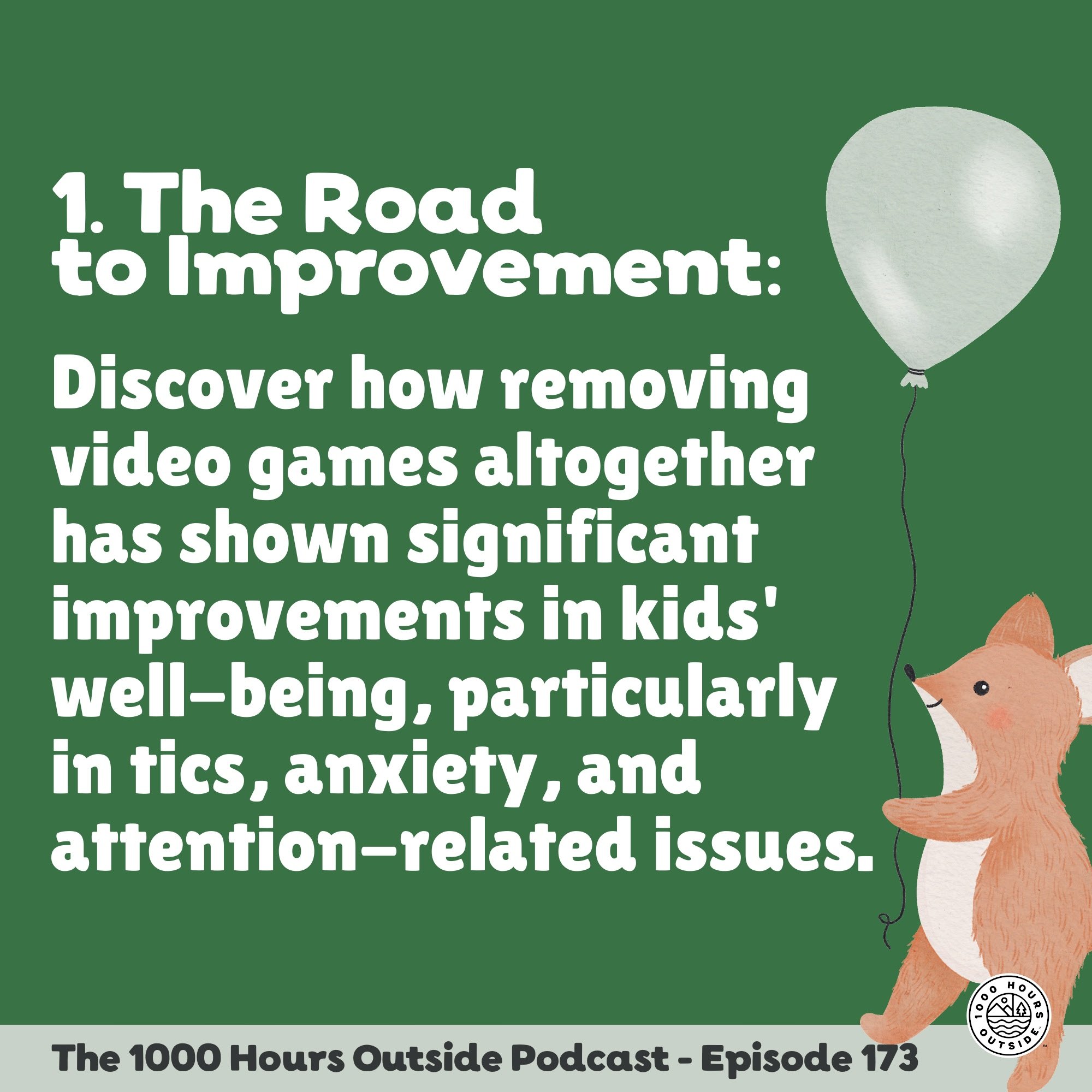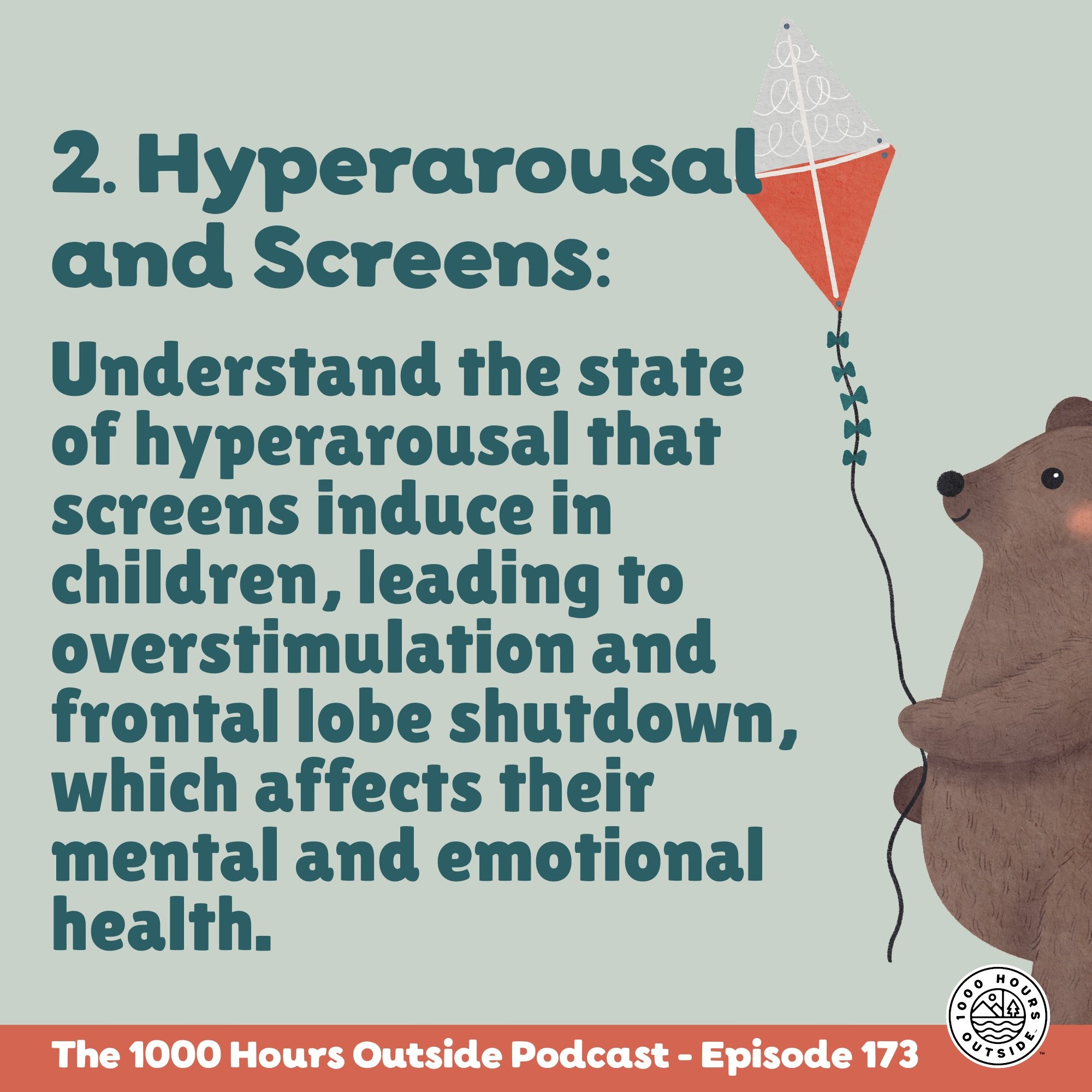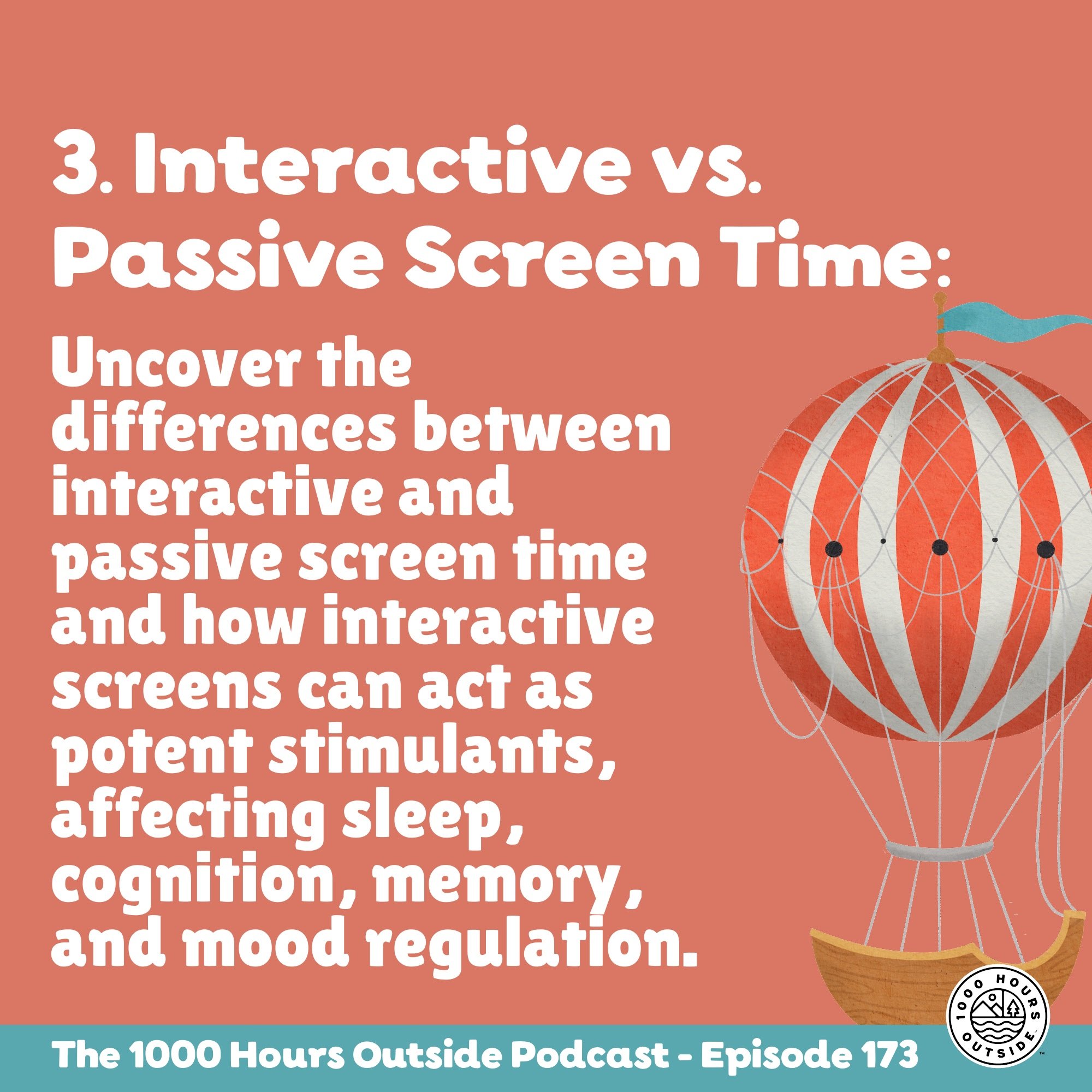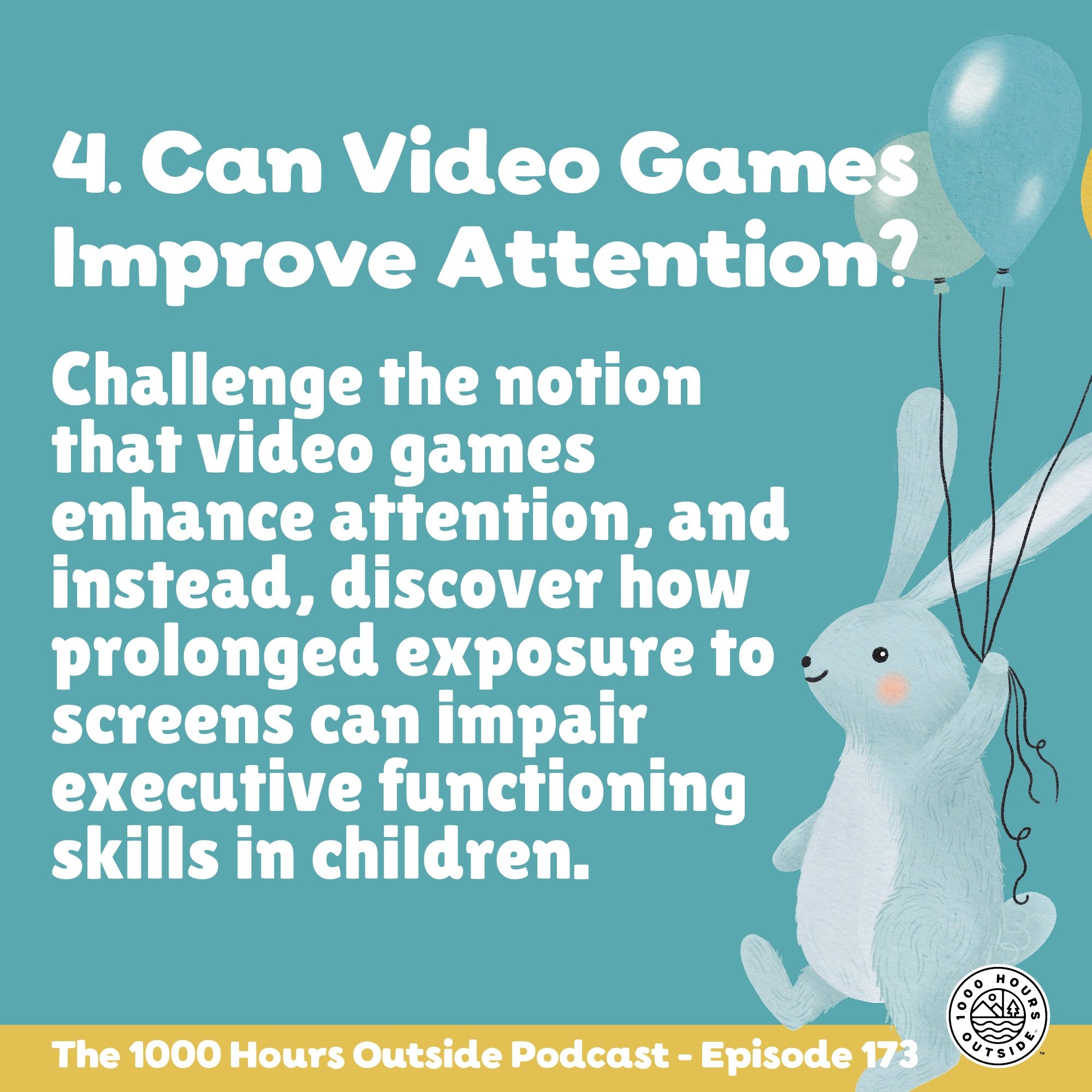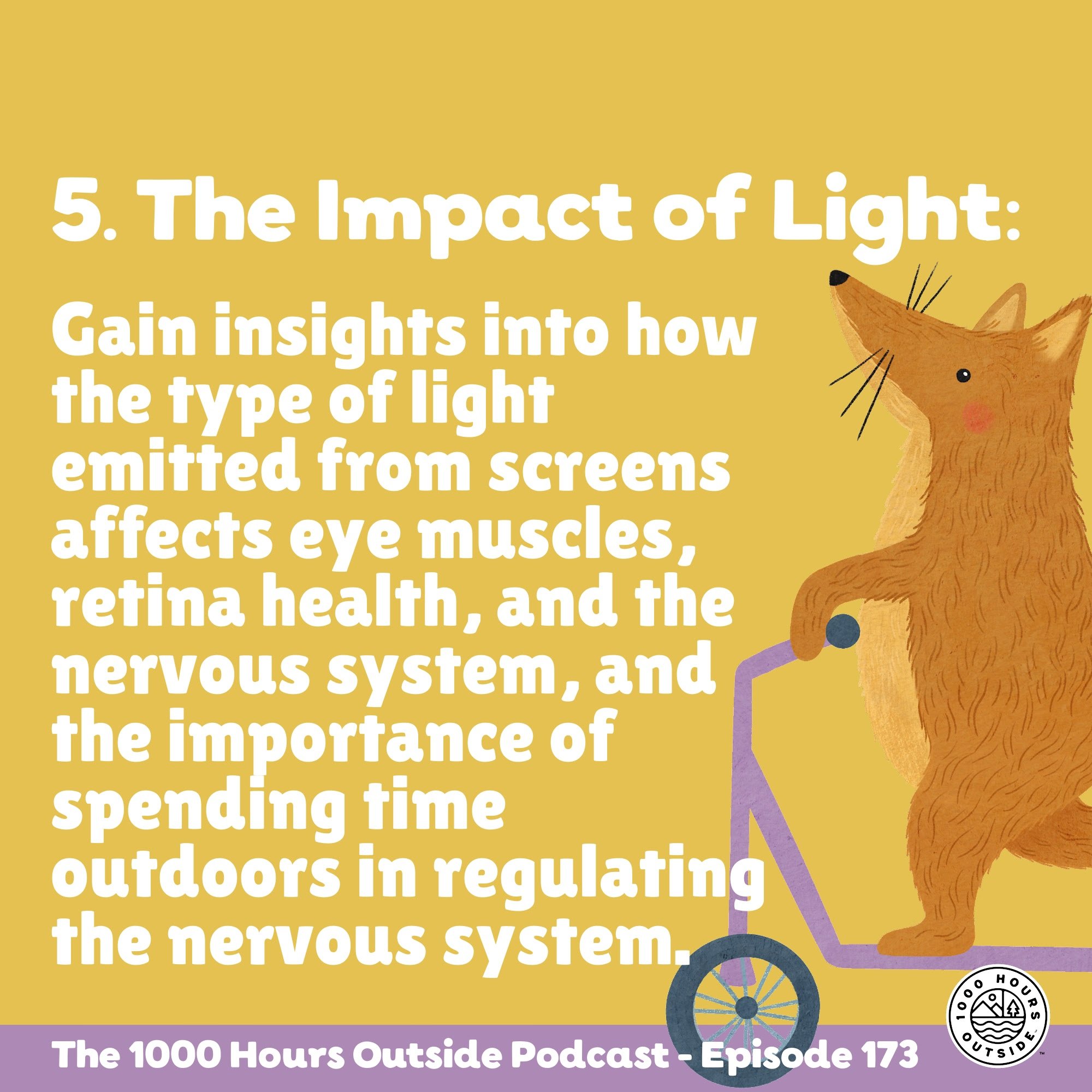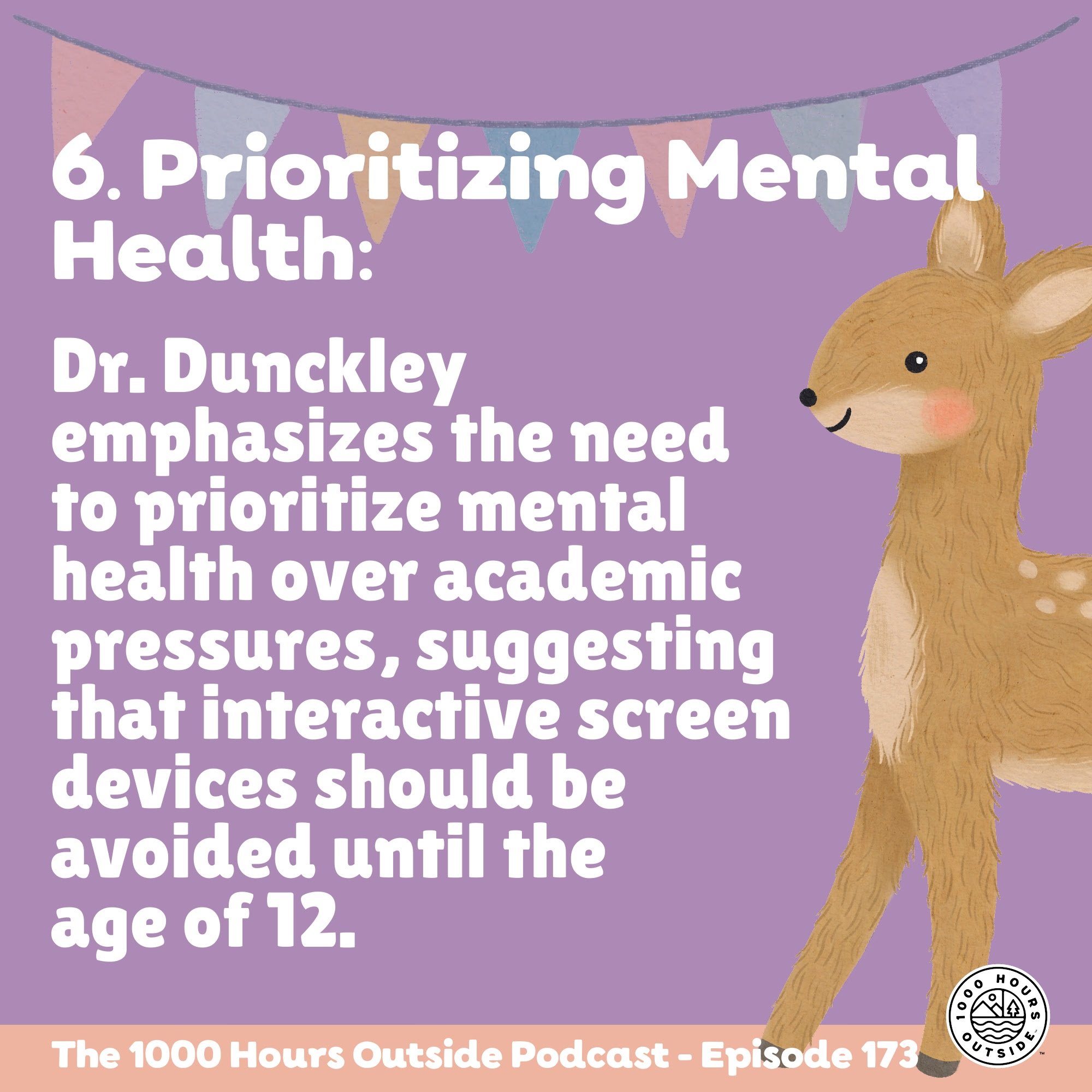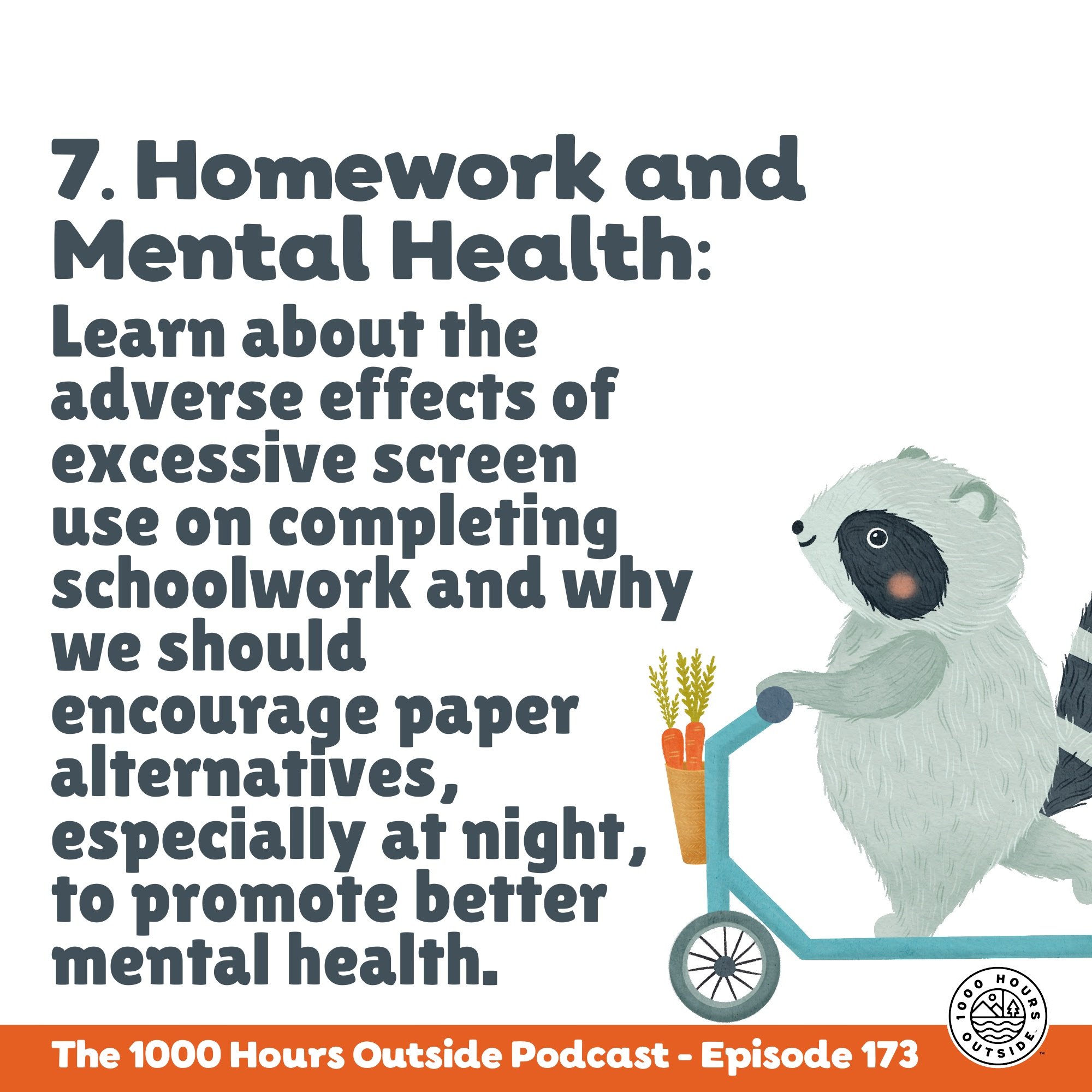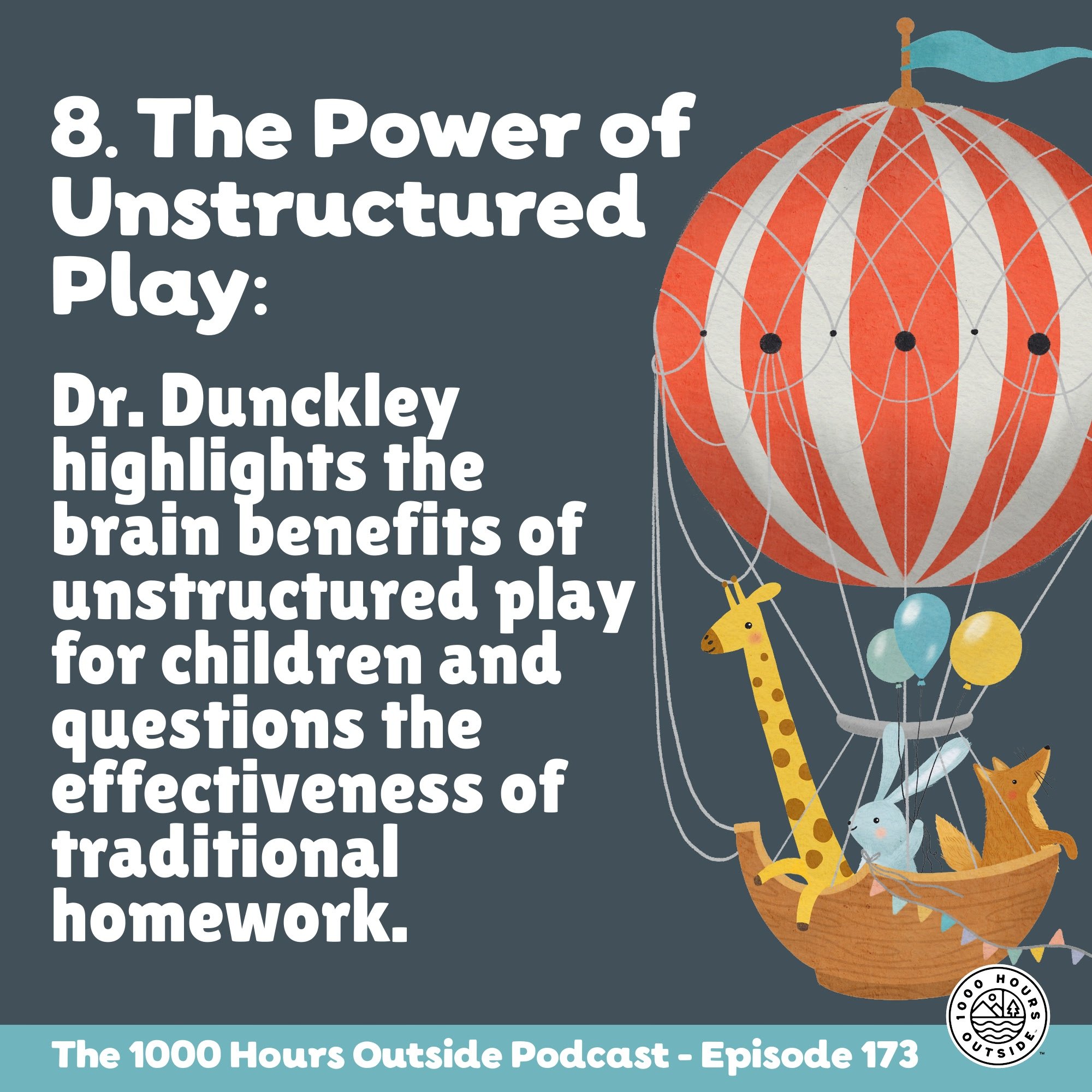Unplugging for Mental Health: Insights from Dr. Victoria Dunckley's "Reset Your Child's Brain”
In a world dominated by technology and screens, it's essential to take a closer look at the impact of excessive screen time on our mental health, especially on children. In a recent episode of The 1000 Hours Outside Podcast, renowned child psychiatrist Dr. Victoria Dunckley shed light on the hidden dangers of screen time. Drawing from her extensive experience and research discussed in her book "Reset Your Child's Brain," Dr. Dunckley shared compelling insights into the connection between screen time and the mental well-being of young minds.
Understanding the Link Between Screen Time and Hyperarousal:
With over 20 years of experience in child psychiatry, Dr. Dunckley initially worked with children in foster care and residential treatment centers, many of whom had experienced abuse or neglect. She observed that these vulnerable children were prone to entering a state of hyperarousal or fight-or-flight response when exposed to even minimal screen time. Surprisingly, eliminating screen time altogether led to noticeable improvements in their conditions. Dr. Dunckley's experiences with more common cases like anxiety, ADHD, and tics also highlighted the striking similarity in the children's hyperarousal states, prompting her to investigate further.
Screen Time as a Stimulant:
Drawing a parallel between screen time and stimulants like caffeine, Dr. Dunckley emphasized how interactive screen activities act as potent stimulants that engage the brain's reward system, triggering a surge of dopamine. However, unlike natural stimuli, interactive screen time can be overstimulating, leading to a mismatch of energy within the body. This hyperarousal, combined with the sedentary nature of screen use, contributes to the fight-or-flight response without an outlet for discharging that energy.
The Impact on Brain Chemistry:
Dr. Dunckley's research revealed various effects of screen time on brain chemistry. Abrupt cessation of screen activities can lead to mood swings similar to the "crash" experienced after the effects of short-acting stimulant medications wear off. Additionally, increased stress hormones, altered body clock, and reduced serotonin levels contribute to feelings of anxiety, agitation, and depression.
Screen Time's Influence on Sleep:
Dr. Dunckley emphasized that the adverse effects of screen time don't end when the devices are switched off. Prolonged screen use, even before bedtime, can disrupt the natural sleep-wake cycle, suppressing melatonin production and hindering restorative sleep. This disturbed sleep pattern can lead to a vicious cycle of seeking more stimulation during the day, causing serotonin depletion and, ultimately, impacting mental health.
The Worrying Trend and Its Connection to Mental Health Issues:
As children continue to consume screen time at unprecedented rates, the alarming rise in mental health issues, including anxiety, depression, and even suicidal tendencies, becomes increasingly evident. Dr. Dunckley's research underscores the importance of recognizing screen time as a powerful stimulant that affects the brain's delicate chemistry. By acknowledging the potential harm of excessive screen time and adopting mindful approaches to technology use, we can pave the way for healthier and happier young minds.
To Sum it All Up:
In the enlightening episode of The 1000 Hours Outside Podcast, Dr. Victoria Dunckley's discussions based on her book "Reset Your Child's Brain" bring to the forefront the critical issue of excessive screen time's impact on mental health. As a society, it is imperative that we heed the warnings and take proactive steps to strike a balance between technological advancements and the well-being of our children. By doing so, we can safeguard their mental health and ensure a brighter, healthier future for generations to come.
If you want to listen to the entire podcast click here to listen on Apple Podcast (or wherever you listen to your podcasts!)


